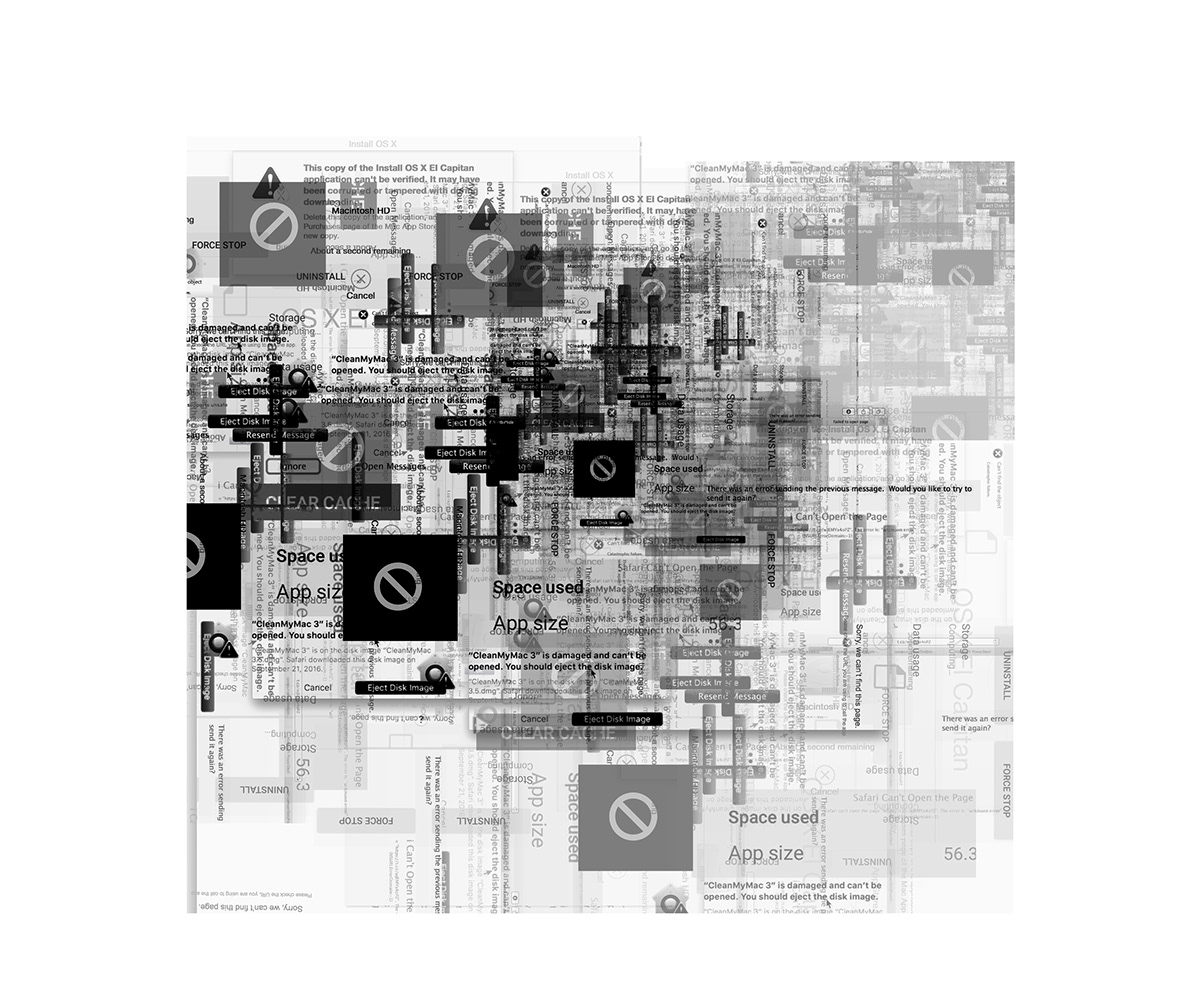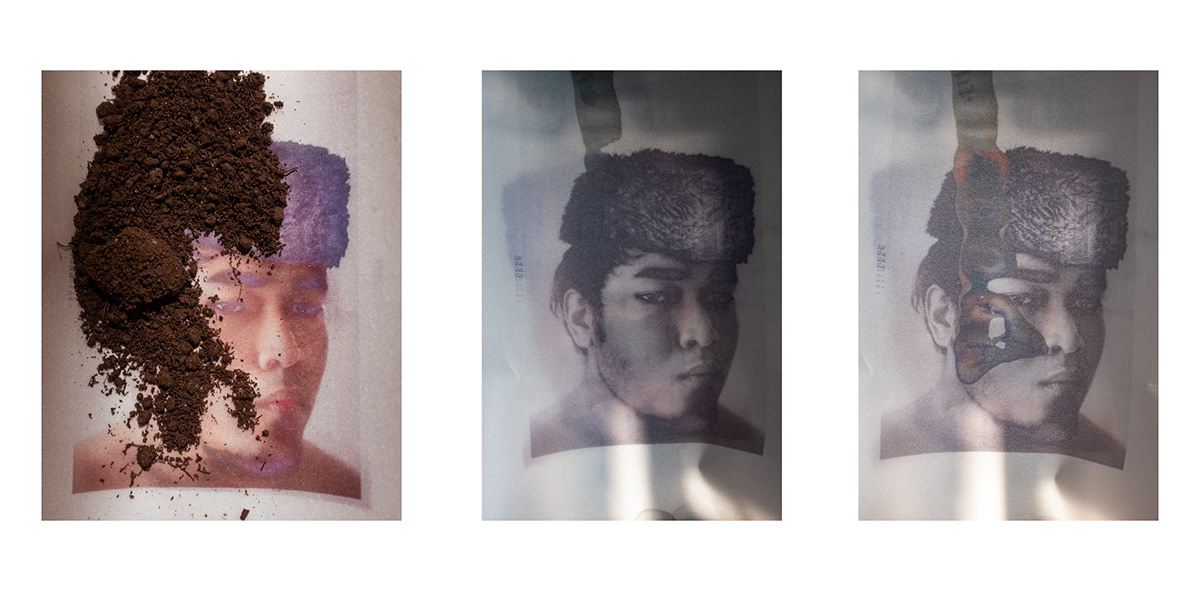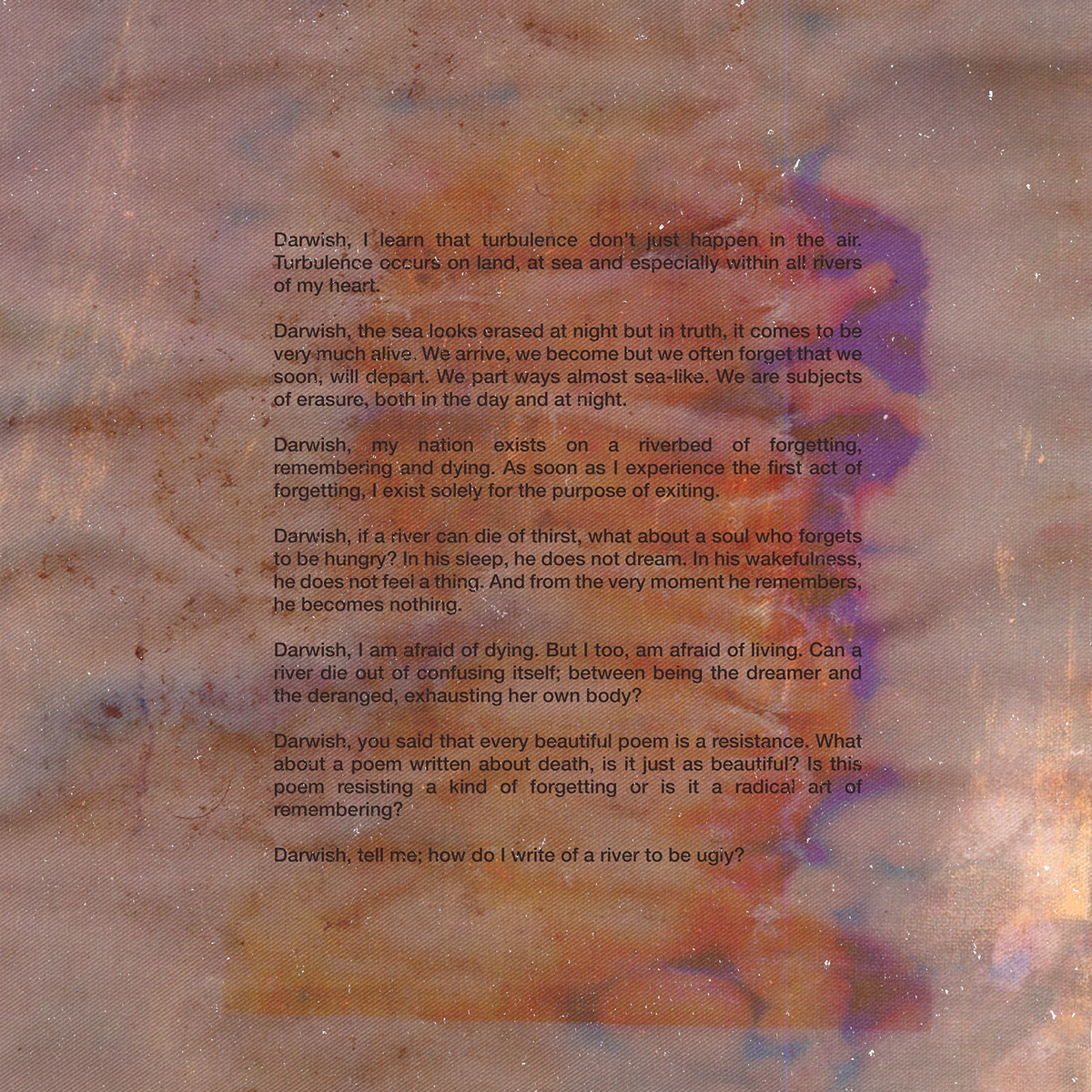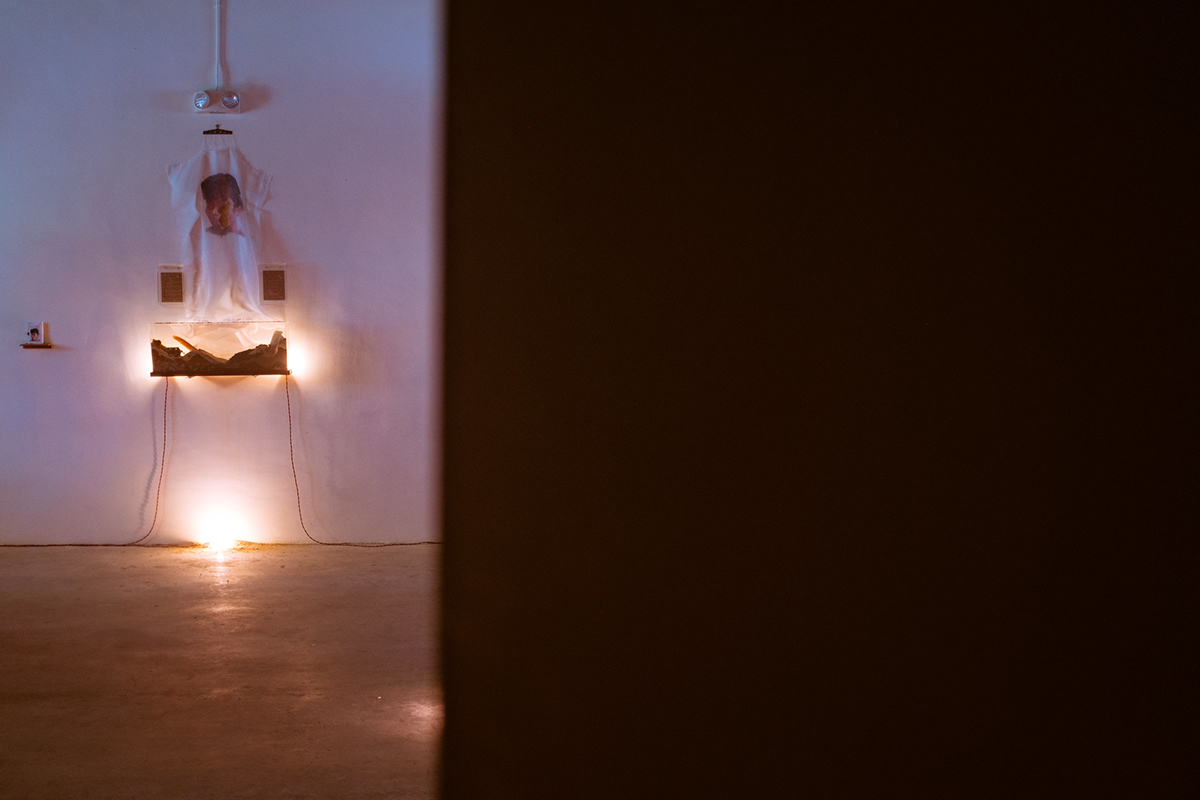When it settles, it dies (2020)
How can one enshrine the forcefully forgotten, the unremembered by will?
In feelings, in memories, in bodies.


In winter 2015, Noor embarked on a spiritual sojourn traversing the air of Sufi mystic, Mevlana Rumi from Iran to Turkey. From it, birthed a body of contemplations entitled How Dust Floats. To Rumi’s adage, “The wound is the place that the Light enters you,” Noor questioned, “What if my Light is wounded?” In summer 2019, this time with Darwish hymns in mind, the pilgrim poet sets off again to unfurl the obsession with light, dust and wounds.
His romance with these fragments of experiences was soon thwarted by colossal collapses of remembrance; a corrupt data storage device and deletion of digital notes holding space for such memories. Such contemporary commemoration of memories invade the spaces of spirituality. This project is s radical attempt at remembering the force of forgetting. A resistance to dust settling, data dying. Noor understands now; the spirit is made up of data ,and like dust, data walks the path of death. The Man is left to mourn and commemorate.
Inspired by the spectacle of vestiges, of ruins and abandonment like the pilgrimage sites, shrines, mausoleums, forgotten bathhouses he witnessed across West Asia, Noor yearns to embody loss through relics of commemoration. Through abodes of sacrality. A museum-masouleum of altars celebrating dust and urban dreams; a recourse for mourning over loss data as a spiritual experience.

There is wind and then there is you.
I saw this section of dust above a maqam of a saint in Kars, Turkey. Suspended, almost frozen in stance. Out of dance. Broke out of trance. It was like the wind had forgotten to lift these specks. Or maybe the wind is resisting. Or maybe the wind was rendered powerless when it comes to fate. And by design, the wind remembers its place. Or maybe the wind is resting. In space. Or maybe there is no separation between the dust and the wind.
There is data and then there is you.
I remember my hard disk making a twitching sound and upon the next insert, failed to conjure any data. There is a colossal collapse of memory. All the stored data in a waiting room waiting to be erased even if not by will. By a glitch. By a ditch. I remember all the digital notes cleared by mistake. A folder named Rivers. It holds all my memories in transit. Has technology failed us in our acts of resisting, in our acts of remembering? Does the wind collide in a cyber space ever so willingly? Has it forgotten to breathe? And to live. Maybe we fail technology too, we forgot to mourn over their loss. We forgot they lose too.




I want to be remembered like a flower on your lap.
A flower that played with your hair in Kashan. Unshowered, faded. And the rain as witness two souls can be near then go separate ways like asteroids avoiding collision. But separation is as brutal as a collision, absence is the felt impact here. A flower hits earth at the absence of your lap. I want to be remembered like earth after rain, and that flower, brown as clay.
I want to be remembered as the foreign dancer at Nowsud during Nowruz, in black leather and Benares shawl. Laughters caged by mountains. My lack of synchronicity with an ever present gaze into your eyes. When we watched "Kill My Darlings" together, I wish you'd heard me whispered, "you truly kill me, darling" in my heart. Softly, like your green eyes. A Kurdish song or a solitary sojourner is how I want to be remembered.
I want to be remembered like tender poems; a Neruda, "love is so short, forgetting is so long." Simple but scours deep. Entrenched in riverbeds of memories. A Sapardi, a Qabbani. I would hang these words on my lips and kiss you all over. And you will sleep with them at night so when tomorrow comes the first few things you awake to are professions of love, white light and a head full of nothing. A love poem writes itself. A poem on heartbreak remembers your name by heart and that very same way, I want to be remembered.
I want to be remembered like to remember is a resistance; like we are built incapable of misremembering. Like forgetting is second nature, but remembering again is third. So you will remember me in waves, in glimpses, a sketch, shadows, suggestions in nature, in desperation, you get an image in vignette. A half faded sunrise. A sky with no stars in sight. A light left on through the night. A photograph corroded in acid but my brown, unrelenting. My soft smile and shoulders, hunched by the weight of sorrows will sit on your chest and you will have trouble breathing. A ghost waits on you so you are a ghost too. I want to be remembered in my moments of waiting, to reach your mind again.
I want to be remembered as the last time you saw my face, the door about to close and my last words, "Don't forget me, please."



Antara Bedok dan Bidadari kau berkhayal menari sendiri tarian si mati. Antara Istanbul dan Isfahan balik kemudian ke pasiran Loyang tubuh bergoyang teringatkan moyang. Tarian zaman ke zaman. Kau alihkan katil ke tepi jendela. Kau labuhkan langsir putih menyelubungi dada. Kau bubuhkan tanah atas gambar. Kau pejamkan mata. Kau kebumikan bayang-bayang insan yang lelah. Kau siramkan air mawar. Kau sedekahkan kata-kata yang kau lupa luahkan. Kasihan. Kenapa habuk dan airmata dua-duanya berderaian? Manusia kejam mendukung bahasa. Atau manusia sebaliknya dipukau kekata, leka. Kita kalah dalam segalanya. Tiada guna melawan. Kita pulang akhirnya.Yang pulang ke bumi yang sama yang rata. Kau akan jadi moyang semalam. Tenggelam dek malam. Ke alam mana kau menghuni setelah hilang pergi? Pernah, masih dan hampir akan tidak lama menemu mati. Cukup-cukuplah tu kau berkhayal.
Translation:
Between Bedok and Bidadari you are in a reverie; alone, in the dance of death. Between Istanbul and Isfahan, then back to the shores of Loyang, your body trembles summoning the spirits of the ancestors. A dance of time. You shift the daybed next to the window. You draw a long white curtain to cover the chest. You spread soil unto a photograph. You close your eyes. You bury the shadows of tired souls. You pour rose water. You offer forgotten words, unsaid. A pity. Why are dusts and teardrops said to be shattered? Man are violent in carrying words. Or maybe Man are lost in the trance of them. We lose in just about everything. Resistance is futile. We go home eventually. The ones who return, ones who are the same, ones who are abreast. You will soon become the ancestor of yesteryears. Drowned by night. To which realm do you go when you vanish? The alreadys, the stills, the almosts will soon die. Enough of your dreaming…











What happens when all the evidences of remembering disappear? What stays when the river dies of thirst? What is left of the spirit after the final wounding?


